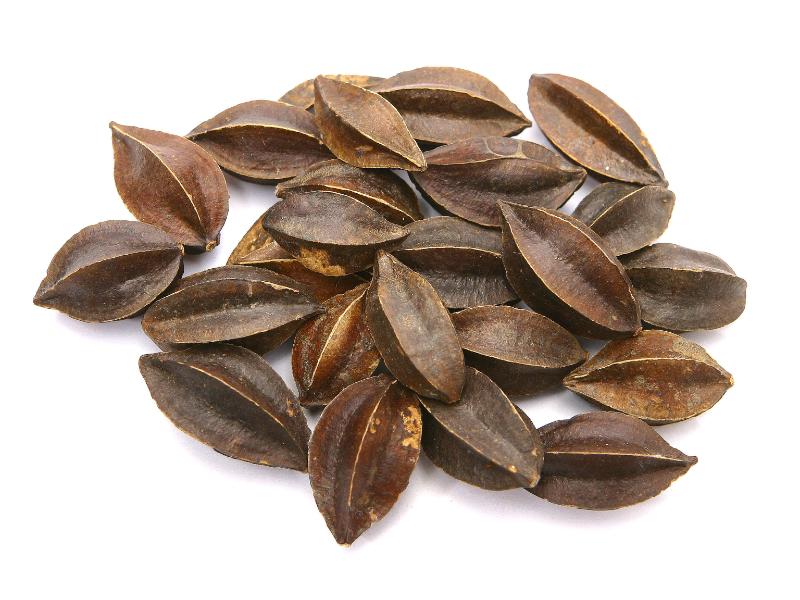Search in medicinals
Quisqualis Fructus
Quisqualis [fruit]
使君子 〔使君子〕 shǐ jūn zǐ

Alternate English names: Rangoon creeper fruit
Alternate Chinese names: 使君子仁 shǐ jūn zǐ rén; 留求子 liú qiú zǐ; 五棱子 wǔ léng zǐ; 索子果 suǒ zǐ guǒ; 冬均子 dōng jūn zǐ; 君子 jūn zǐ; 使君肉 shǐ jūn ròu; 使君子肉 shǐ jūn zǐ ròu
Kingdom: Plant
Origin in PRC Pharmacopoeia: Quisqualis indica L. (PRC Pharmacopoeia)
Origin in unofficial sources: Quisqualis indica L.
Use: Medicinal
Category: Worm-expelling agents
Properties: Sweet; warm.
Channel entry: Spleen and stomach channels.
Actions and indications:
- Expels worms: Roundworm and pinworm.
- Disperses accumulation: gān accumulation in children.
Dosage and method: Oral: Decoct (9–15g) or use in pills and powders.
Warnings: Large doses can lead to hiccup, dizziness,
Product description: This fruit is elliptical in shape with pointed ends. It is about 4 cm long and 1.5–2 cm in diameter. It is dark brown in color and has 5 sharp longitudinal ridges. It is hard and cannot be broken with the fingers. The transverse section appears as a five-pointed star shape. The fruit contains one seed, which has a purple-black seed coat bearing longitudinal wrinkles.
Quality: Dry large fruits with plump oily seeds are the best.
Production area: Sìchuān, Guǎngdōng.
Etymology: Shǐ jūn zǐ 使君子 is traditionally explained as Shǐ-Jūn seed,
the medicinal name after Guō Shǐ-Jūn of Fanzhou, who used it successfully to treat many children.